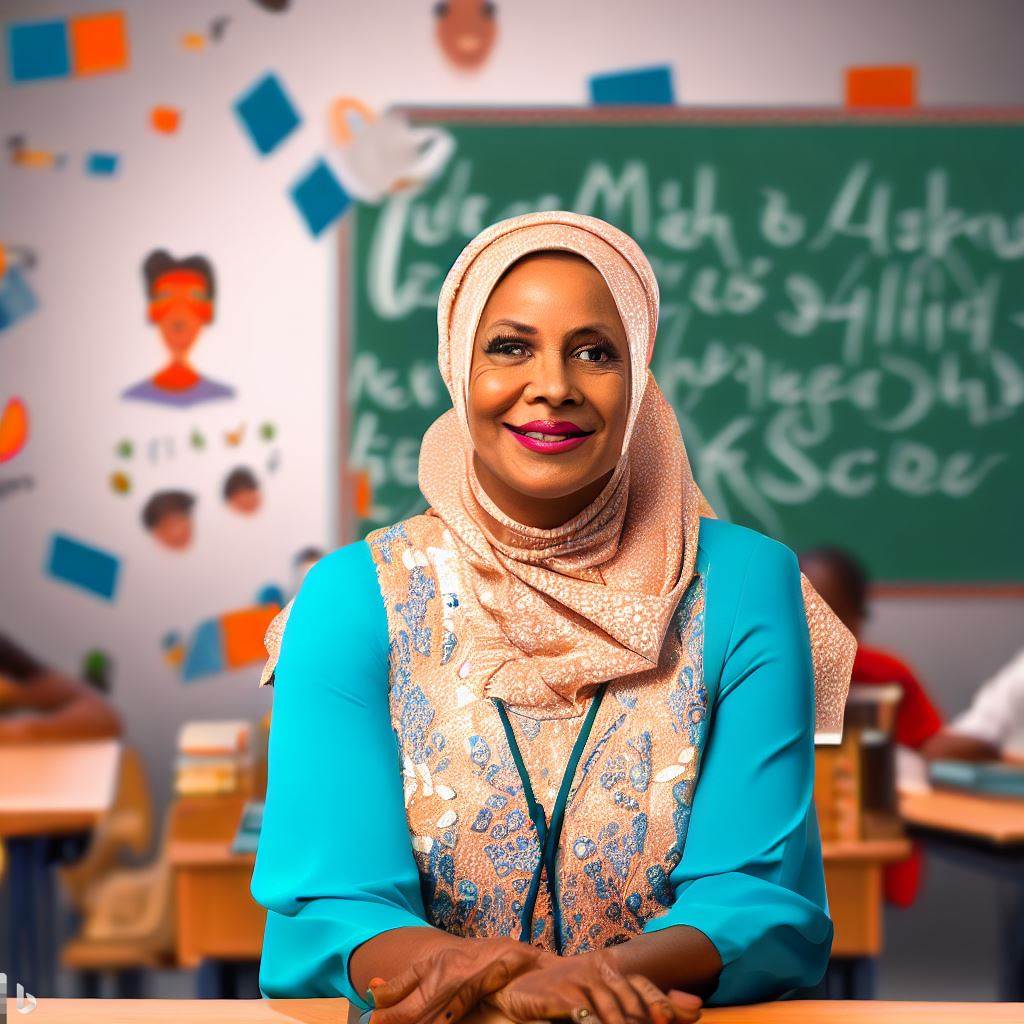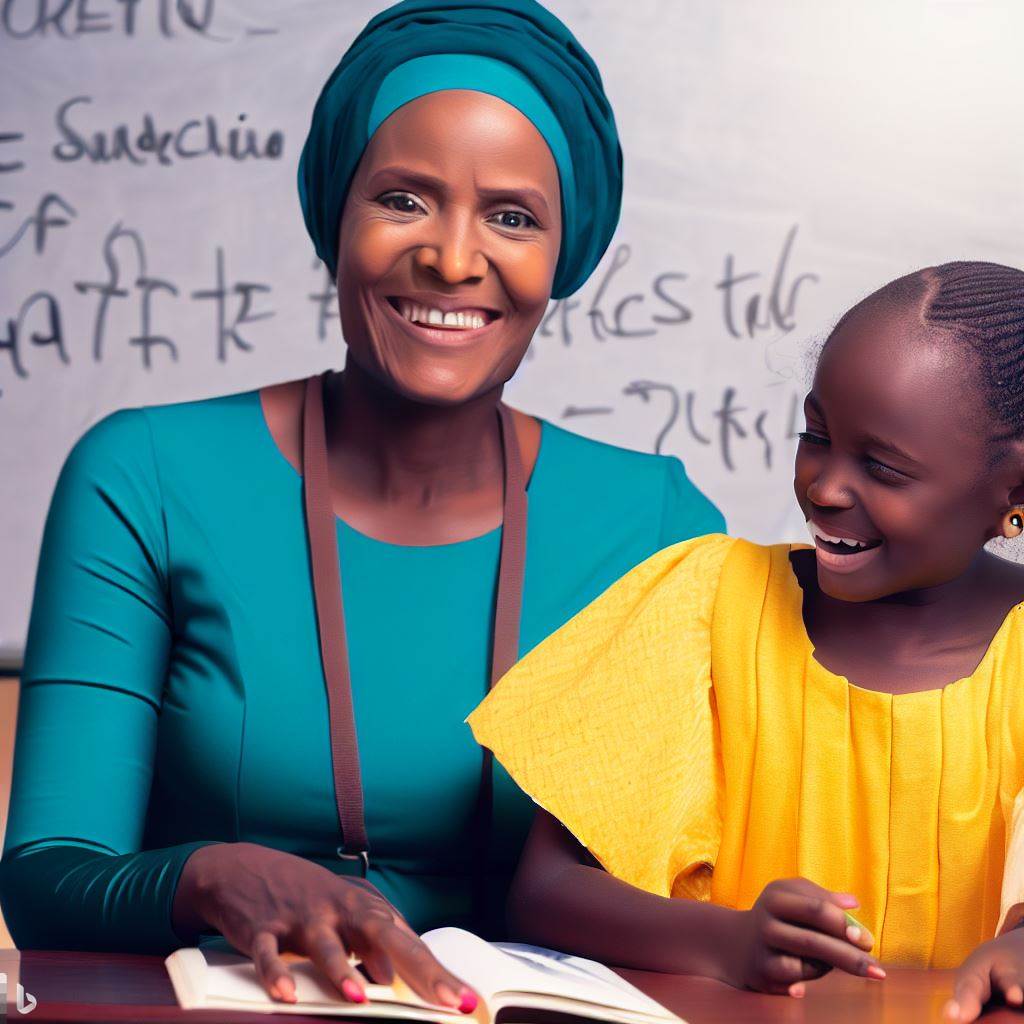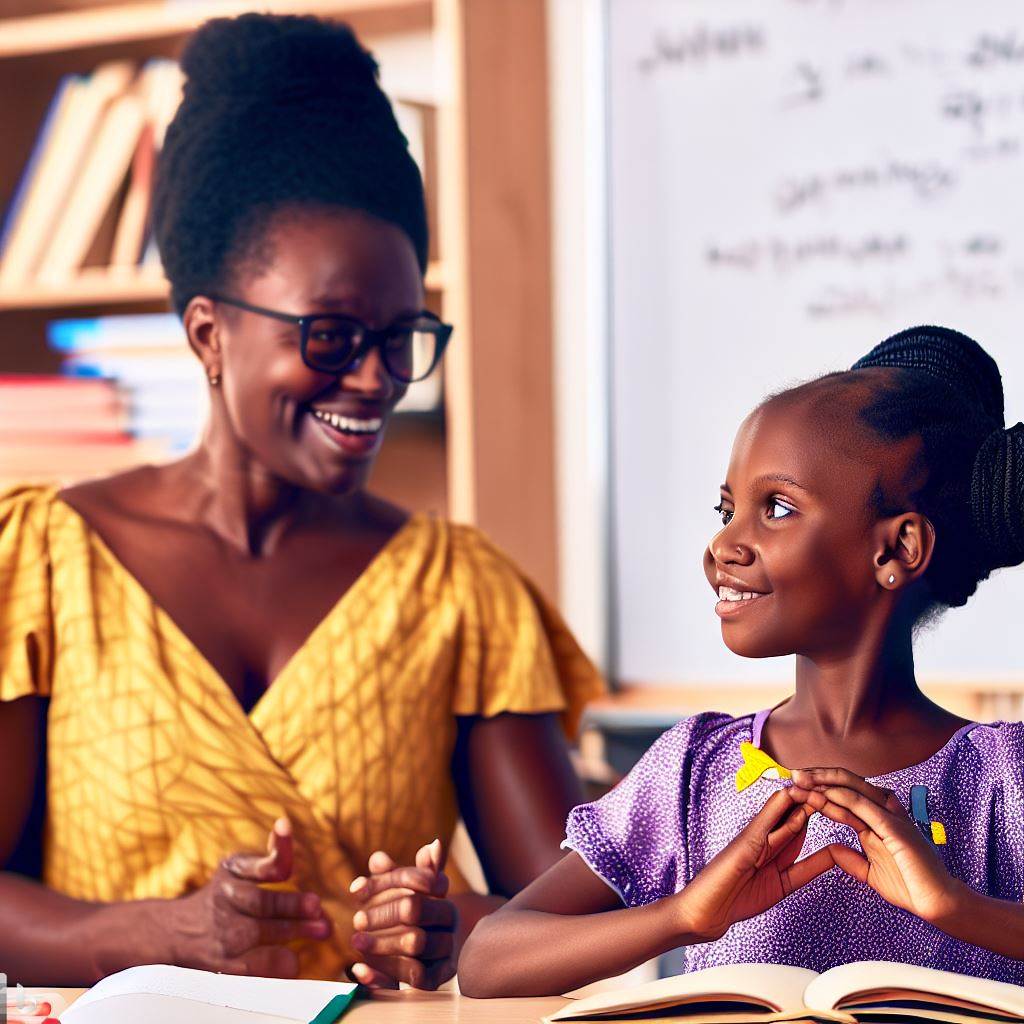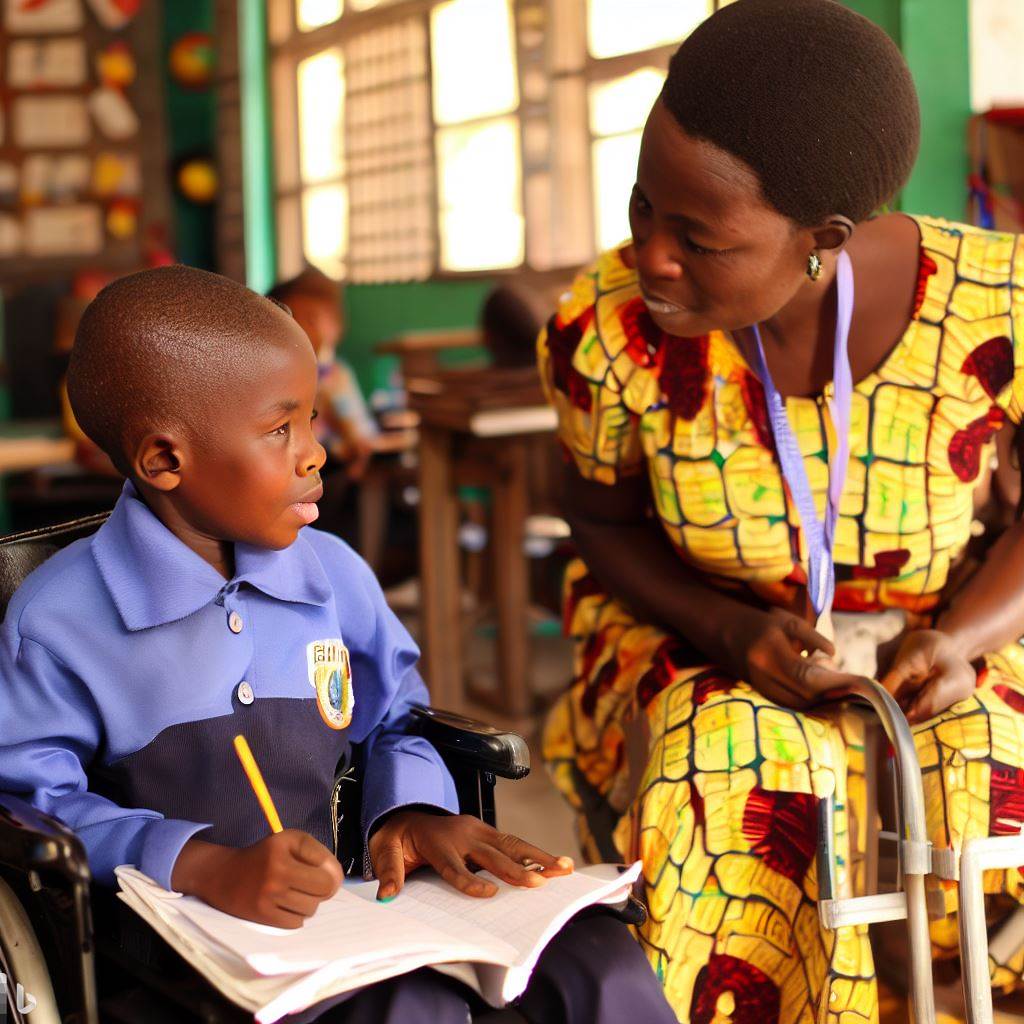Introduction
Special education refers to educational programs and services designed to meet the unique needs of individuals with disabilities in Nigeria.
These disabilities can range from physical, cognitive, sensory, and emotional impairments.
Importance of government policies in improving special education
Government policies play a crucial role in improving special education in Nigeria. They provide guidelines, regulations, and funding that ensure equal access to quality education for all individuals with disabilities.
These policies create a framework for inclusive education, address discrimination, and promote the rights of individuals with disabilities.
Additionally, government policies help in the establishment of special education schools, training programs for teachers, and the provision of necessary resources and materials.
It also ensures that adequate support and accommodations are given to students with disabilities, enabling them to reach their full potential.
Government policies also promote awareness and advocacy for special education, encouraging a shift in societal attitudes towards inclusivity and acceptance.
By implementing supportive policies, the Nigerian government can create an enabling environment that allows individuals with disabilities to thrive academically, socially, and emotionally.
In the end, special education in Nigeria relies on the implementation of effective government policies that prioritize inclusivity, support, and equal opportunities.
With the right policies in place, special education can be improved, enabling individuals with disabilities to receive the education and support they deserve.
Current state of special education in Nigeria
Challenges and limitations faced by special education students
- Lack of inclusive classroom settings where special education students can learn alongside their peers.
- Inadequate access to appropriate learning materials and assistive technologies for special education students.
- Limited opportunities for social interaction and inclusion for special education students.
- Marginalization and stigmatization of special education students within society.
- Inequality in educational opportunities for special education students, hindering their overall academic development.
- Ineffective assessment and evaluation methods for special education students, often leading to misplacement or underachievement.
Lack of resources and facilities for special education
- Inadequate funding for special education programs by the Nigerian government.
- Lack of specialized classrooms, equipment, and materials for effective teaching and learning of special education students.
- Inaccessibility of schools and educational facilities for students with physical disabilities.
Insufficient trained teachers to cater to special needs students
- Limited number of qualified special education teachers in Nigeria.
- Inadequate professional development and training opportunities for teachers in special education.
Overall, the current state of special education in Nigeria faces various challenges, including limited resources, inadequate facilities, and a lack of trained teachers.
These issues negatively impact the educational opportunities and experiences of special education students, resulting in their marginalization and hindered development.
It is crucial for the Nigerian government to prioritize and invest in improving the policies and provisions for special education, promoting inclusivity and creating an enabling environment for the holistic growth and development of all students.
Read: Case Studies: Successful Special Education Teachers in Nigeria
Nigerian government’s role in improving special education
Current policies and initiatives implemented
The Nigerian government has implemented various policies and initiatives aimed at improving special education.
One of the key policies is the National Policy on Education, which recognizes the rights of children with disabilities to access quality education.
This policy ensures that every child, regardless of their disabilities, has the right to education and creates an inclusive environment in schools.
Additionally, the government has established the Nigerian Educational Research and Development Council (NERDC) to develop curriculum materials for learners with special needs.
These curriculum materials are tailored to meet the specific learning needs of students with disabilities, ensuring they receive appropriate education.
Furthermore, the government has implemented the Universal Basic Education (UBE) Act, which guarantees free and compulsory basic education for all children with disabilities.
Through the UBE Act, the government aims to increase enrollment and retention rates among children with disabilities in schools.
Moreover, the government has introduced the Special Needs Education (SNE) program, which focuses on identifying, assessing, and catering to the educational needs of students with disabilities.
This program has led to the establishment of Special Education Centers across the country, providing specialized support and resources to students with disabilities.
The Nigerian government’s emphasis on inclusive education and specialized programs reflects its commitment to improving special education.
Collaborations with international organizations and NGOs
The Nigerian government has recognized the importance of partnerships with international organizations and non-governmental organizations (NGOs) to improve special education.
Collaborations with organizations such as UNICEF, UNESCO, and the World Bank have helped in implementing inclusive education practices.
These organizations provide technical support, expertise, and funding to enhance the quality of special education in Nigeria.
NGOs like the Special Education Society of Nigeria (SESN) and Disabled People’s International Nigeria (DPI Nigeria) also play a significant role in advocating for the rights of individuals with disabilities.
Through partnerships with these organizations, the Nigerian government has been able to address the challenges faced in special education and implement effective strategies.
Read: Insights into the Teaching Profession in Nigeria Today
Allocation of funds for special education programs
The Nigerian government recognizes that financial resources are crucial in improving special education and has allocated funds for special education programs.
The government has made budgetary provisions to ensure that schools have the necessary facilities and resources to support students with disabilities.
Funding is also allocated for teacher training and capacity building programs to enhance the skills and knowledge of educators in special education.
Additionally, the government encourages public-private partnerships to mobilize resources and increase funding for special education initiatives.
In fact, the Nigerian government plays a vital role in improving special education through the implementation of current policies and initiatives, collaborations with international organizations and NGOs, and the allocation of funds for special education programs.
These efforts aim to create an inclusive educational environment, provide tailored curriculum materials, and ensure equal access to education for children with disabilities in Nigeria.
Read: Building Inclusive Classrooms: The Nigerian Perspective
Evaluation of government policies on special education in Nigeria
Successes and achievements of government initiatives
The Nigerian government has made several successful initiatives to improve special education.
The implementation of inclusive education policies has led to increased enrollment of students with disabilities.
Government funding has improved infrastructure and resources in special education schools. Special education teachers have received training and support to enhance their teaching methods.
The establishment of special education centers has provided specialized services to students with disabilities.
Areas that still require improvement and attention
Despite progress, there is a need for more inclusive practices in regular schools for students with disabilities.
The availability of assistive technologies and accessible learning materials remains limited. There is a lack of awareness and understanding among parents and communities about special education.
Teacher shortages and inadequate staffing ratios continue to be a challenge in special education. Transportation and accessibility issues hinder the participation of students with disabilities in education.
Impact of policies on students, parents, and educators
Government policies have positively impacted students with disabilities, providing them with better access to education.
Parents have benefited from increased support and resources for their children with special needs. Educators in special education have seen improvements in their professional development opportunities.
The overall awareness and acceptance of special education have gradually improved among the society. However, challenges still exist, such as the stigma faced by students with disabilities and their families.
In general, the Nigerian government has made significant strides in improving special education through various policies and initiatives.
These efforts have resulted in increased enrollment, improved infrastructure, and better support for students with disabilities.
However, there are areas that still require improvements, such as inclusive practices in regular schools and availability of assistive technologies.
The impact of these policies extends to students, parents, and educators, providing them with opportunities for growth and development.
As the government continues to evaluate and address the challenges, it is crucial to prioritize the inclusion and empowerment of students with disabilities in the education system.
Read: Resources and Support for Special Education Teachers in Nigeria

Best practices and case studies in special education policy
Showcase of successful programs and policies from other countries
- Finland: The Finnish government has implemented inclusive education policies that prioritize individual support for students with special needs.
- Canada: The Canadian government has developed a comprehensive special education program that focuses on early intervention and adaptive teaching methods.
- Australia: Australia has successfully implemented inclusive education policies that aim to provide equal opportunities for students with disabilities in mainstream schools.
- United States: The Individuals with Disabilities Education Act (IDEA) in the United States ensures that students with disabilities receive appropriate educational services.
Lessons that can be applied to Nigeria’s special education system
- Emphasize inclusive education: Nigeria can learn from countries like Finland, Canada, Australia, and the United States and prioritize inclusive education for students with special needs.
- Increase funding: Adequate financial resources must be allocated to special education programs to ensure the availability of trained educators and necessary resources.
- Training and professional development: Continuous training and professional development programs should be provided to teachers to enhance their knowledge and skills in catering to the needs of students with disabilities.
- Early intervention: Early identification and intervention for students with special needs can significantly enhance their educational outcomes. Nigeria should invest in early detection and support programs.
- Parent involvement: Active and meaningful involvement of parents in their child’s special education journey can lead to better outcomes. Nigeria should encourage and support parental participation.
- Collaboration and networking: Establishing networks and collaborations with international organizations and institutions can provide valuable resources and expertise for improving special education in Nigeria.
- Policy implementation and monitoring: Effective implementation and monitoring mechanisms should be put in place to ensure that policies and programs are being implemented as intended and continuously evaluated for improvement.
- Address societal attitudes and stigma: Efforts should be made to raise awareness and change societal attitudes towards individuals with disabilities, promoting acceptance and inclusion across all levels of society.
By learning from successful programs and policies implemented in other countries, Nigeria can take significant steps towards improving its special education system.
The key lies in prioritizing inclusive education, providing adequate funding and resources, and ensuring continuous training and support for educators.
Early intervention, active parental involvement, collaboration, and addressing societal attitudes are also crucial factors that can contribute to a more inclusive and effective special education system in Nigeria.
Read: Career Progression Paths for Special Ed Teachers in Nigeria
Recommendations for improving special education in Nigeria
Increased funding and resources
- Allocate a higher percentage of the national budget to special education programs.
- Invest in the construction and maintenance of accessible infrastructure for special education schools.
- Purchase and provide adequate learning materials, assistive devices, and technologies.
- Offer financial incentives to attract and retain qualified special education teachers.
- Establish funding mechanisms to support research and development in the field of special education.
Professional development and training for special education teachers
- Create specialized training programs for future special education teachers.
- Provide ongoing professional development opportunities for current special education teachers.
- Promote partnerships with universities to develop specialized degree programs in special education.
- Offer scholarships and grants to encourage individuals to pursue careers in special education.
- Implement mentorship programs to support novice special education teachers.
Enhanced collaboration between government, schools, and stakeholders
- Establish a national coordinating body for special education to facilitate collaboration and coordination.
- Encourage regular communication and information-sharing between special education stakeholders.
- Create forums and platforms for dialogue and exchange of best practices in special education.
- Involve parents and caregivers in decision-making processes regarding their children’s education.
- Collaborate with non-governmental organizations and community groups to expand support services.
In order to improve special education in Nigeria, it is crucial to address the recommendations outlined above.
Increased funding and resources will ensure that adequate support is provided to students with special needs.
Professional development and training for special education teachers will enhance their skills and knowledge.
Enhanced collaboration between government, schools, and stakeholders will promote a holistic and inclusive approach to special education.
By implementing these recommendations, Nigeria can create an enabling environment for the growth and development of special education in the country.
Conclusion
Recap of the significance of government policies in improving special education
Government policies play a crucial role in improving special education in Nigeria.
Through proper funding, inclusion initiatives, and curriculum development, the government can ensure that all students with special needs receive the support they require to succeed academically and socially.
Special education policies also promote equal opportunities and access to education for all children, regardless of their disabilities.
By implementing these policies, the government can create an inclusive society where every child has the chance to reach their full potential.
Call to action for ongoing efforts to enhance special education in Nigeria
While government policies are important, ongoing efforts are necessary to further improve special education in Nigeria.
Stakeholders: educators, parents, organizations, and policymakers must actively collaborate and advocate for positive changes in special education.
Teachers must undergo ongoing training, developing professionally. They should become more aware of special needs, understanding them better.
Additionally, providing sufficient resources and assistive technology requires attention.
Let’s advance Nigerian special education, aiding students with special needs to thrive through support, opportunities, and resources.




